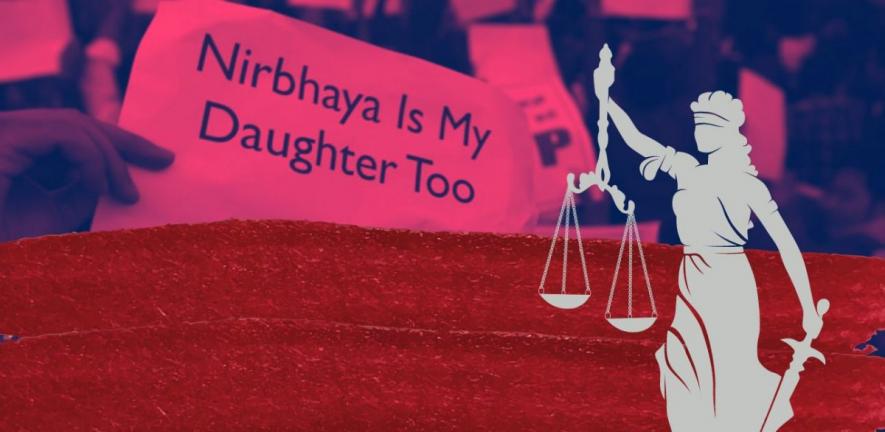A Decade of Reflection: The Delhi Nirbhaya Case and its Ongoing Impact

December 16, 2012, marks a somber anniversary in the history of India—the day a brutal incident shook the nation’s conscience and ignited a fervent demand for change. The Delhi Nirbhaya case, where a young woman was brutally gang-raped and assaulted on a moving bus, ultimately leading to her death, triggered unprecedented outrage and sparked a nationwide movement for justice and systemic transformation.
The Incident:
The gruesome incident occurred on a cold winter night when a 23-year-old physiotherapy intern, later referred to as Nirbhaya, and her male friend boarded a private bus in Delhi. The heinous crime unfolded as they became the victims of a brutal gang rape and assault by a group of six men. Nirbhaya’s injuries were so severe that she succumbed to them 13 days later, on December 29, 2012, in a Singapore hospital.
Read more: Eternal Bonds: Choosing Christian Baby Boy Names – A Tale of Hope and Tradition
Public Outcry and Legal Proceedings:
The incident led to an outpouring of public anger and demands for justice. Massive protests erupted across the country, with people from all walks of life demanding stricter laws, swifter justice, and a safer environment for women. The perpetrators were swiftly apprehended and brought to trial.
In September 2013, four of the accused were sentenced to death by hanging, a decision that was later upheld by the Delhi High Court in 2014. The Supreme Court of India also affirmed the death penalty in 2017, and in 2020, the last remaining legal avenues were exhausted when the review petition was dismissed.
Changes in Legal Framework:
The Delhi Nirbhaya case was a catalyst for significant legal reforms aimed at addressing sexual violence and ensuring a more expeditious judicial process. The Criminal Law (Amendment) Act, 2013, commonly known as the Nirbhaya Act, was enacted to amend existing laws related to sexual offences. The amendments expanded the definition of sexual offences, increased the punishment for rape, introduced new offences, and enhanced the legal framework for the protection of victims.

Fast-track courts were established to expedite trials in cases of sexual violence. The focus was on reducing the time taken for investigations, hearings, and the overall legal process, ensuring that justice was delivered swiftly.
Creation of Nirbhaya Fund:
In 2013, the Indian government established the Nirbhaya Fund, dedicated to initiatives aimed at enhancing the safety and security of women. The fund supports projects addressing issues such as women’s safety, self-defence training, and the creation of a more secure urban infrastructure.
Implementation Challenges and Ongoing Issues:
While significant strides have been made in the aftermath of the Nirbhaya case, challenges remain. The implementation of legal reforms and the establishment of fast-track courts have faced hurdles, leading to delays in justice for many survivors of sexual violence.
Social and Cultural Change:
The Nirbhaya case triggered a seismic shift in public perception and discourse surrounding gender-based violence. It prompted a national conversation on toxic masculinity, patriarchal norms, and the urgent need for cultural change. Women across the country began to speak out against harassment and assault, fostering a climate where survivors felt empowered to report incidents and seek justice.
However, the journey towards a safer and more equitable society is ongoing. Changing deeply ingrained societal attitudes requires sustained efforts through education, awareness campaigns, and community engagement.
We’re now on WhatsApp. Click to join.
Impact on Subsequent Cases:
The Nirbhaya case served as a wake-up call for law enforcement agencies, the judiciary, and society at large. It heightened sensitivity to cases of sexual violence and brought about a greater willingness to address these issues head-on.
Subsequent cases of sexual violence have been met with a more proactive response from authorities, and public pressure for swift justice has increased. The media, civil society, and advocacy groups continue to play a crucial role in keeping the spotlight on cases of sexual assault and harassment, ensuring that perpetrators are held accountable.
Read more: Everything you need to know about Makar Sankranti 2024: Date, Time, History, Significance And …
Conclusion:
The 11 years since the Delhi Nirbhaya case have seen a mix of progress and challenges in the fight against sexual violence. Legal reforms, the establishment of fast-track courts, and increased awareness have undoubtedly made an impact. Yet, the journey is far from over, and the tragic incident continues to serve as a reminder of the work that remains to be done to create a society where every individual, regardless of gender, can live free from fear and violence.
Like this post?
Register at One World News to never miss out on videos, celeb interviews, and best reads.









